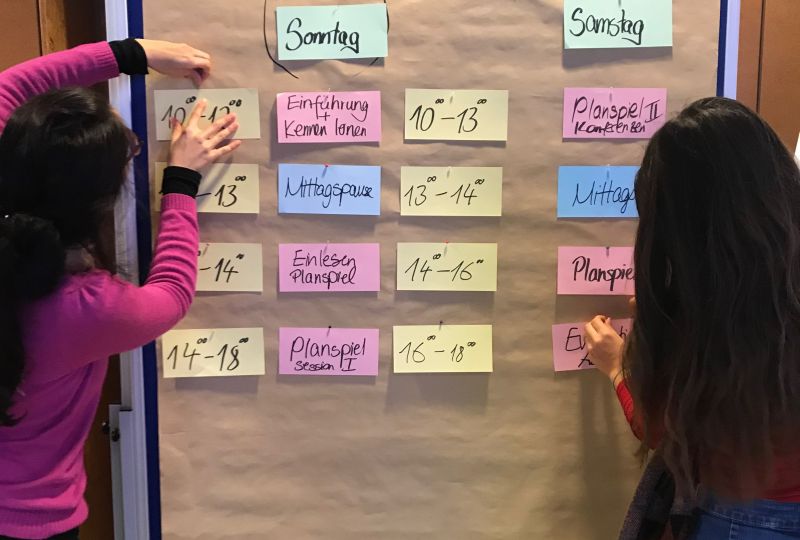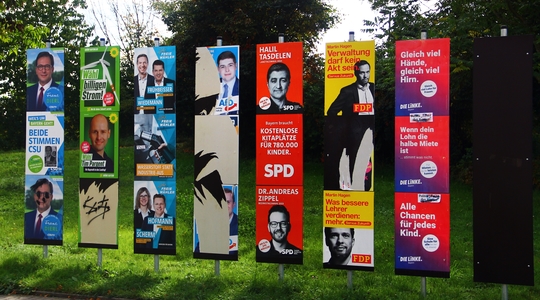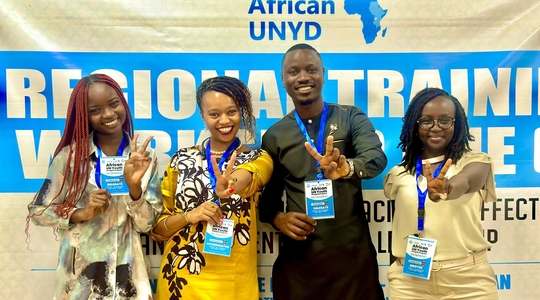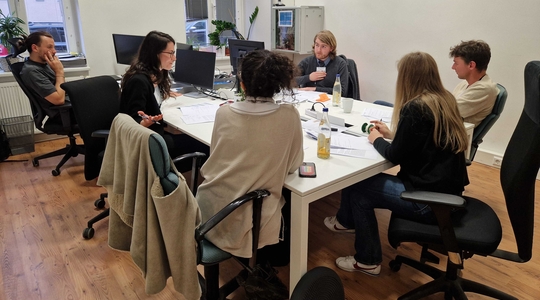We previously developed the simulation game together with Al Sharq in 2016/2017 and adapted the scenario more closely to the current context of the conflict in 2018 . Our host was Hometown Hannover, a civil society organisation that is creating save spaces for refugees and citizens of Hannover to get to know each other, debate and organize political events together- not for, but together with refugees.
The simulation game “Syria” deals with recent developments in Syria, but has some fictive elements as well. The context setting is a conference between the conflict groups in the so-called Damaya province, which to a limited extend reflects the overall Syrian situation.
A multitude of conflict lines and parties with changing and contradictory interests characterize the Syrian conflict. The hopeful situation when in 2011 people took to the streets for their political ambitions and a democratic vision for Syria has long since turned into a conflict in which many and not only Syrian actors intervene and shape the conflict. Ever since, a complex conflict has developed in the country that is difficult to understand. The debate about Syria in Germany is mostly dominated by the consequences of people flying to Europe, the actual causes of flight have receded into the background. This applies in particular to possible solutions that are urgently needed but are hardly discussed. The participants of the simulation had the very challenging task of understanding the numerous actors and their interests.
Therefore, the simulation deals with conflict dynamics and possible peace agreements in the war in Syria. Be it a Syrian grassroots activist from the very beginning or a Russian general: in the simulation, the participants negotiate a peace agreement for a fictitious region of Syria. The aim of the simulation game is to develop a deeper understanding of the conflict and to explore various options for ending the violence in the country. In so doing, the simulation game begins about four weeks after the decision to set up a de-esclation zone in Damaya. The most important actors in the conflict have agreed to meet to develop a detailed "roadmap" for Damaya's future.
During the simulation, we intended to create a save space for the participants to take on different roles and challenge their understanding of the dynamic nature of conflict, its complexity and the capacities of the international community to resolve them. In doing so, the participants were faced with the chances and obstacles when it comes to set up a sustainable conflict transformation process. Furthermore, they were able to develop and test alternative problem-solving approaches when it comes to negotiating peace agreements.
After the game an evaluation took part, in which the participants were able to reflect about the process and their learning outcomes. These included an improvement of their negotiation skills as well as a deeper understanding of the complexity of the Syrian conflict and its different actors. During the reflection it became obvious, that the participants had to think about how to treat spoilers, how to deal with hidden agendas, and what the first steps to a sustainable peace agreement are. The participants concluded that the fictional scenario is a helpful way of discussing possible peacebuilding solutions in an experimental environment.



